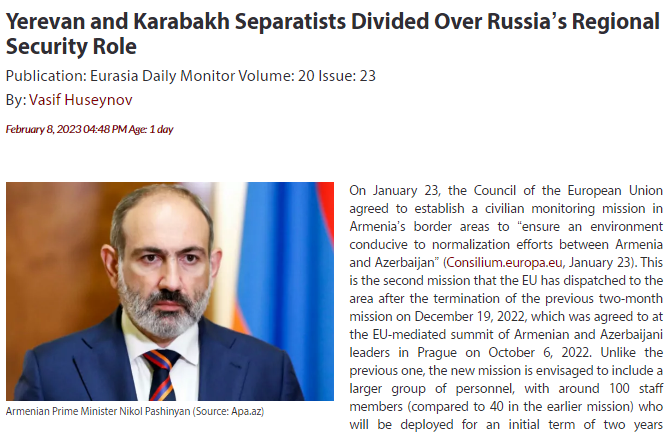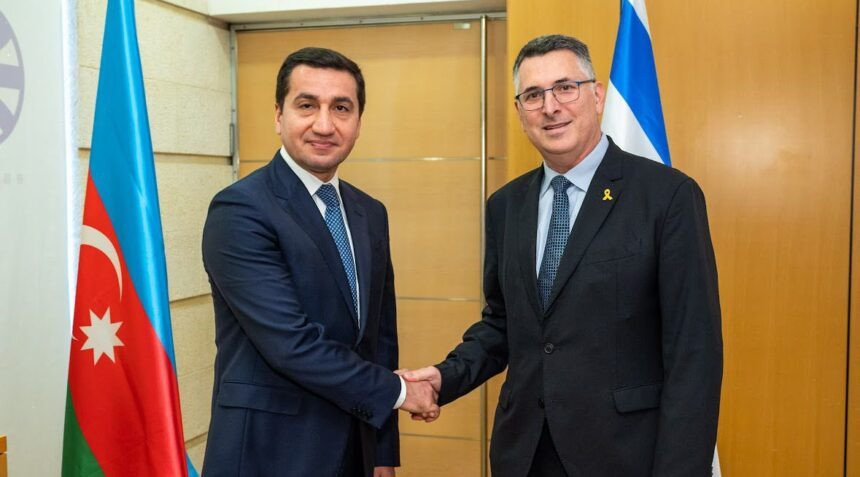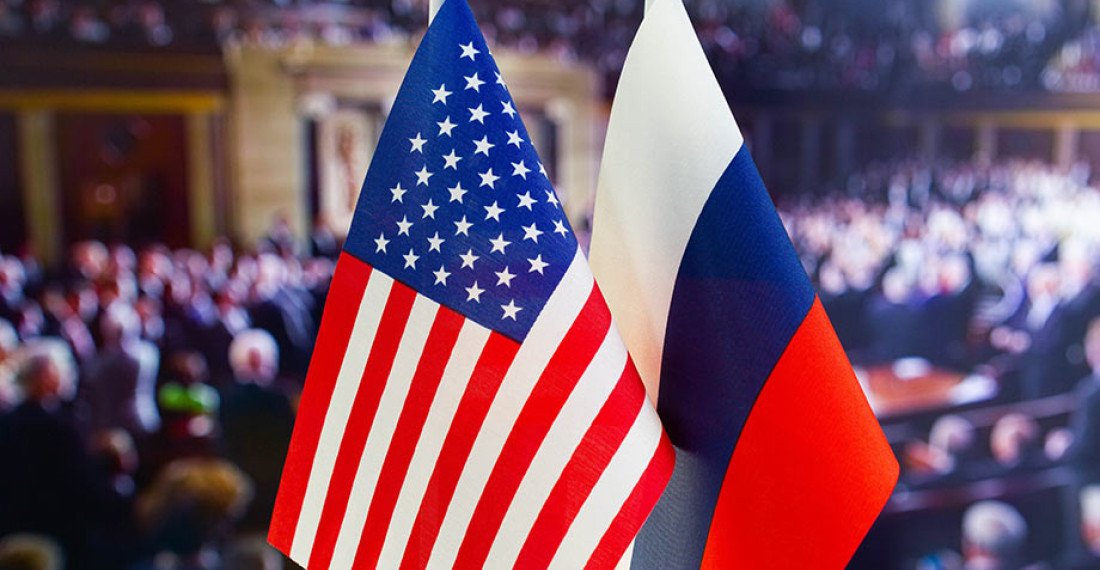On January 23, the Council of the European Union agreed to establish a civilian monitoring mission in Armenia’s border areas to “ensure an environment conducive to normalization efforts between Armenia and Azerbaijan” (Consilium.europa.eu, January 23). This is the second mission that the EU has dispatched to the area after the termination of the previous two-month mission on December 19, 2022, which was agreed to at the EU-mediated summit of Armenian and Azerbaijani leaders in Prague on October 6, 2022. Unlike the previous one, the new mission is envisaged to include a larger group of personnel, with around 100 staff members (compared to 40 in the earlier mission) who will be deployed for an initial term of two years (Eeas.europe.eu, January 23).
This undertaking carries with it serious geopolitical significance for the region, as Armenia is a military ally of Russia within the Collective Security Treaty Organization (CSTO) and hosts the Russian 102nd military base at Gyumri. In addition, Armenia’s shared borders with two of its neighbors—Turkey and Iran—have been guarded jointly with Russian border troops since the collapse of the Soviet Union. Although the Armenian authorities have sought to assuage Russia’s concerns by declaring that “the political vector” of Yerevan is not changing, it has hardly sufficed to adequately reassure the Kremlin (News.am, January 23).
It is, therefore, not surprising that Russia expressed its strong displeasure with the joint decision of Armenia and the EU to deploy the new monitoring mission. Characterizing the EU as an “appendage of the United States and NATO [North Atlantic Treaty Organization],” the Russian Foreign Ministry’s statement lamented that the EU mission “can only bring geopolitical confrontation to the region and exacerbate existing contradictions” (Mid.ru, January 26). The government ministry was also appalled by Yerevan’s rejection of Moscow’s offer for the deployment of a CSTO mission to the Armenian-Azerbaijani border areas—instead opting for the EU mission. The statement stressed that the CSTO mission could be quickly deployed if Yerevan expressed interest.
Indeed, the CSTO had offered to send an observer mission to the Armenian-Azerbaijani border after the September 2022 clashes between the two countries (see EDM, October 4, 2022). On January 24, a day after the EU announced its new mission, CSTO spokesperson Vladimir Zaynetdinov announced that the organization was working on a proposal to send its own mission to Armenia (RBC, January 24). He regretted that it was not possible to adopt such an agreement at the last session (November 2022 in Yerevan) of the Collective Security Council of the CSTO, where Armenian Prime Minister Nikol Pashinyan vetoed the final declaration as a “manifestation of disappointment in the organization” due to its lack of actions against Azerbaijan (News.am, January 10). On January 10, Pashinyan had also declined to host the peacekeeping exercises of the Russian-led CSTO later this year, refuting an announcement from the Russian Ministry of Defense that was released one week earlier (Armenpress.com, January 10). In further remarks, the Armenian premier also described Russian military presence in his country as a threat to Armenia (see EDM, January 19).
This diminishing vision regarding Russia’s security role vis-à-vis Armenia contradicts the approaches of the separatist regime in the Karabakh region, particularly against the backdrop of the ongoing crisis on the Lachin road. For the Armenian government, Russian peacekeepers in Karabakh should have already resolved this crisis, and they have failed their duties if they refuse to do so. Pashinyan, in a comment that might be perceived in Moscow as insulting to Russia’s image in the region, also suggested that the Kremlin can initiate the deployment of a multinational mission to Karabakh in the United Nations Security Council if it is “incapable of fulfilling its obligations” (Apa.az, January 10).
This was rebuffed by the so-called “state minister” of the separatist regime in Karabakh, Ruben Vardanyan, a Russian oligarch who is believed to have been installed in the region to subvert the Armenian-Azerbaijani peace process (Azernews, January 16). Prior to his dispatch to the region in late 2022, Armenia and Azerbaijan agreed to recognize one another’s territorial integrity, and Yerevan had signaled that it would recognize Karabakh as part of Azerbaijan in a peace treaty planned to be signed by the end of last year (See EDM, October 17, 2022). This process halted as a result of the intervention by Moscow, which found these negotiations a threat to the Russian military presence disguised as a peacekeeping force in Karabakh.
Hence, for Vardanyan, the Russian “peacekeepers have to stay here and stay for decades, ensuring security in the region,” Responding to Pashinyan, naming him simply as “a political figure,” Vardanyan added that, if the official view is that Russian peacekeepers are not fulfilling their duties, “I suggest they come here, stand with us and see what a big role Russian peacekeepers play here” (News.am, January 12). The Russian oligarch is a strong proponent of closer ties between Armenia and Russia and, prior to his dispatch to Karabakh, he publicly advocated for Armenia’s entry into the Union State of Russia and Belarus, which was rejected by Yerevan (YouTube, March 10, 2022; TASS, January 10). He is therefore seen in Baku as Moscow’s inside man (Report.az, November 17, 2022). Indeed, against the backdrop of the Lachin protests (See EDM, January 19), Azerbaijani Foreign Minister Jeyhun Bayramov, in a meeting with his Russian counterpart, Sergei Lavrov, reiterated Baku’s demand that Vardanyan should leave the area (Report.az, December 23, 2022).
These developments, in parallel with the ongoing situation in the Lachin Corridor, suggest a number of conclusions about future peace and stability in the region and Russia’s role therein. Above all, it signifies Moscow’s declining role as a power broker in the region, which the Kremlin has traditionally treated as part of its sphere of influence. However, it would be premature to conclude that this might lead to Russia’s complete withdrawal from the region or to Armenia’s exit from the Russian-led military and economic blocs anytime soon.
In truth, Armenia remains significantly dependent on Russia economically, as manifested by the close to 70-percent growth in bilateral trade turnover between the two countries in 2022. Some have pointed out that this growth may have come as a result of Yerevan’s help to Moscow in circumventing Western-imposed sanctions (Sputnik Armenia, December 26, 2022). Moreover, to be sure, the Kremlin will deploy all its potential in hopes of extending the peacekeeping mission in the Karabakh region. The success or failure of this approach will largely depend on the future trajectory of Russia’s war against Ukraine. Even so, Moscow’s regional standing has taken a hit, even among its traditional allies, which will have a profound impact on the region’s geopolitics.








